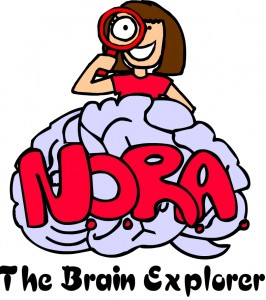The Neurodevelopment Of Reasoning Ability study (better known as NORA) is a large and long-term study of the behavioral and neurological development of high-level cognition in children and adolescents between the ages of 6 and 19. The sample consists of 201 individuals, for whom we collected some or all of the following types of data at 1-3 timepoints, with an average of 1.5 years between assessments:
1. Demographic information
2. Standardized assessments of cognitive function
3. Scores on state-wide tests of academic achievement (California STAR testing)
4. Tests of reasoning carefully designed in our lab
5. Measures of brain structure: cortical thickness, as measured by structural MRI scans, and white matter integrity, as measured by diffusion tensor imaging
6. Measures of brain function: patterns of activation and functional connectivity on fMRI scans during performance of two different reasoning tasks
This study was co-led by Professors Silvia Bunge and Emilio Ferrer (a quantitative psychologist at UC Davis). It was first funded by a grant from the National Institute of Neurological Disorders and Stroke, and then by a grant from the National Science Foundation. Over the past few years, the lab has been collaborating with UC Berkeley colleague Kevin Weiner, a neuroanatomist, to study relationships between cortical folding, functional organization, and performance on tests of reasoning and other cognitive abilities.
Sample publications [for full list, please see ResearchGate]:

